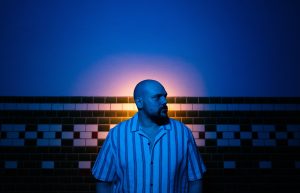Interview: melodic advetures with Nihil Young
In a hectic schedule, music producer Nihil Young, though overwhelmed by work, carved out a moment in his studio sanctuary to share the behind-the-scenes of his creative process with us. Today, we transport ourselves into the realms of sound to discover what lies behind the musical compositions, in an exceptional interview with the creator himself .Throughout our conversation, Nihil Young provides insights into his creative process, the inspirations shaping his melodic works, and reflections on the ever-evolving landscape of electronic music.
How did your journey into music production begin, and what led you to explore your chosen genre like Melodic Techno?
I started DJing and learning turntablism when I was 14 years old, as I always wanted to recreate the sounds of scratching from old hip hop records. Then I began producing beats for rapper friends, and finally, I was captivated by the sounds of house and techno to the extent that I wanted to recreate those sounds as well. So, I delved into music production, and the passion was so significant that I left my studies to pursue a career in music. This led me to open my label Frequenza in 2009. I’ve been genre-unbound since the start, moving back and forth from tech house to progressive house to techno. I finally found and developed my blend of genres, interpreted as melodic house and techno according to the latest trends.
What inspirations and influences shape your creative approach to crafting melodies in your music?
Lately, I’ve been listening back to a lot of tunes I’ve done and didn’t do over the years, thinking about how I could have done them better. Nature inspires me, and so does a lot of music, especially outside of the genres that I produce myself. I love drum and bass and its many sub-genres; I think it’s one of the most intricate and inspiring genres to look at when you’re seeking inspiration.

Can you share your process for creating your tracks? What tools and techniques are crucial for you during music production, and how do you manage the high frequency of releasing new music?
Always start a new track from scratch, not using any templates I made and not relying on many presets, besides one of my very favorites, which is a trombone-like big bassy lead that I designed on Sylenth, Serum, and Virus. As far as tools go, lately, I’ve been using Serum on pretty much everything, and Universal Audio and Plugin Alliance tools for mixing and mastering. I also use Kick2 for kicks and Live’s drum rack for layering them. Since I always want to surprise myself and come up with something unique every time I do a track, I don’t look much at genres or repeating myself but rather see it as a new adventure. I don’t have a 9 to 5 job, and I’m not touring anymore, so I want to come up with fresh new music every week.
In what ways does collaborating with other artists, such as Adam Nazar, Juliane Wolf, and many vocalists, influence your creative approach? What aspects of collaboration do you value the most in the context of your music creation?
In the case of songs, I usually send the singers a few instrumentals, and they come up with the lyrics and vocals, which I then incorporate back into the track and embellish them as much as possible with the same elements or by adding new ones. But I also love it when they have an acapella, and I have to build something from scratch around it. When I collaborate with other producers, I look at what’s the very best element in their track idea and try to build and complement them as much as possible. When I collaborate with other artists, I love to know that they’re comfortable with what I’m doing and with the way I’m shaping the song, but I also maintain my critical and very personal take on what I do and try to make everyone happy in the process.
As the music landscape evolves, what current trends do you observe, and what innovations do you plan to introduce in your work?
Other than AI and new technologies that may arise in the future, I don’t think there’s anything new, and it’s always down to a rediscovery of something that was, rather than the invention of something that doesn’t exist. Time and trends are cyclical, and it’s been observed times and again, especially in modern music. Always looking forward to new tools and synthesizers but trying not to get lost in the sea of tools that are available already are both crucial aspects of staying productive and inspired. I’ve been using AI revoicing for some of my songs, and I’m planning on using AI for artworks more and more.
What are your plans for 2024 regarding your music creation and the development of your artistic career?
I have some strong collaborations, remixes, and EPs coming up, of which I’m particularly happy. On the other hand, we’re expecting a baby, so I will take some time off of touring and insane studio time for a while :)
Congratulation Nihil ! 🙂 and Good Luck !

